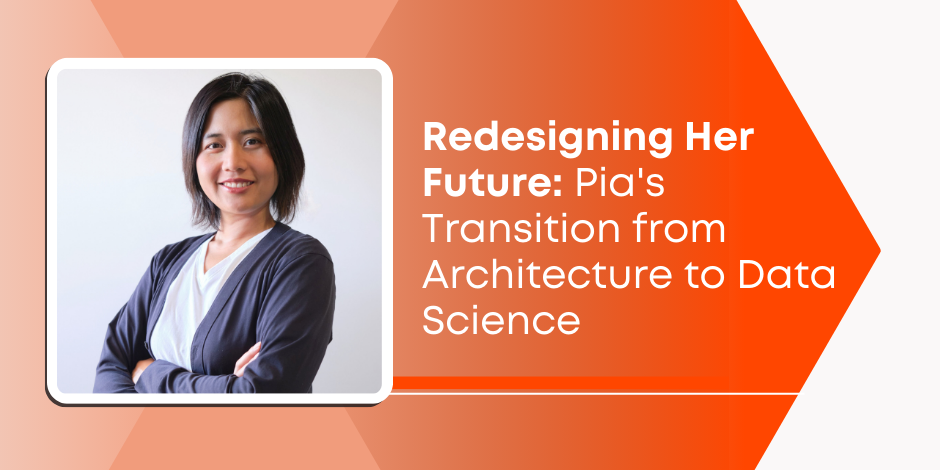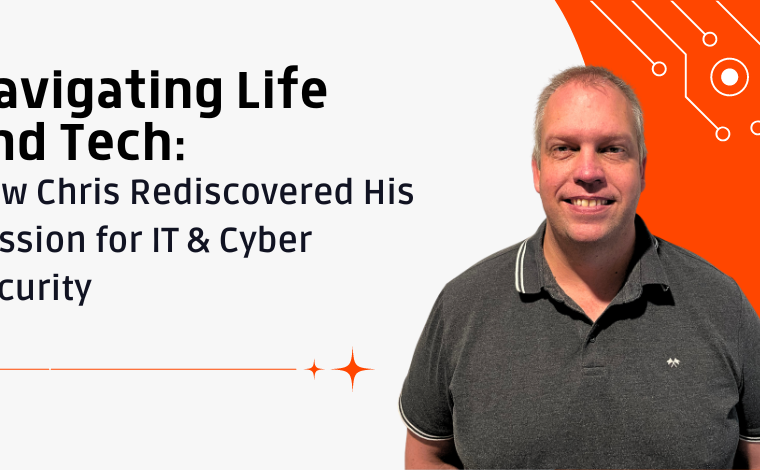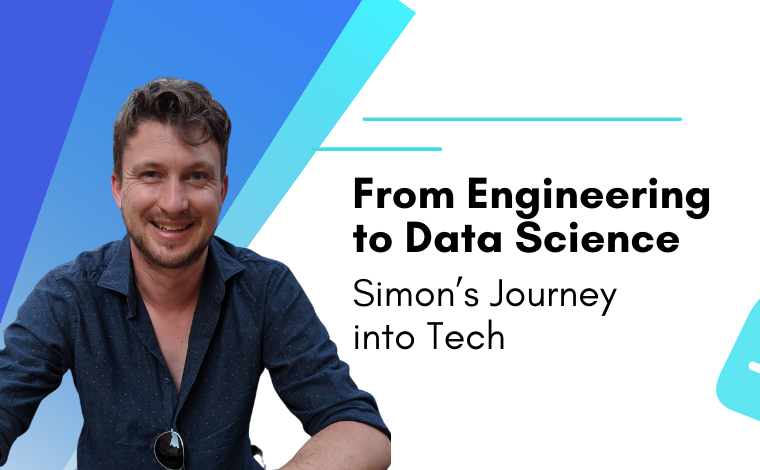Redesigning Her Future: Pia’s Transition from Architecture to Data Science

Stay Informed With Our Weekly Newsletter
Receive crucial updates on the ever-evolving landscape of technology and innovation.
Embarking on a career in data science can be both exciting and challenging.
For Pia Nithi, this journey represents a fusion of her creative background in architecture and her passion for technology.
In this case study, we delve into the key questions that shaped Pia’s transition from Building Architect to Digital Engineer Analyst through the Institute of Data’s Data Science & AI Programme.
From her motivations for pursuing data science to her experiences with the Institute of Data’s Programme, Pia’s story offers valuable insights for anyone considering a similar path.
Join us as we explore her journey, the pivotal moments, and the advice she has for aspiring data scientists.
1. Hi Pia, please tell me a bit about yourself.
I enjoy spending my free time staying active.
I particularly love swimming and hiking. These are my go-to activities for unwinding and recharging.
Prior to studying Data Science, I studied and worked as a building architect.
My career in architecture was quite an adventure! I was involved in a wide range of activities, including design, research, consulting, and even product development.
The diverse experience I gained during this time has proven to be incredibly valuable as I transition into the world of data.
So, I’ve always been surrounded by technology in some way.
I really enjoy using the fusion of technology and creativity as a design tool to bring my creative ideas to fruition.
This fusion has allowed me to bring my imagination to life.
2. Why did you decide to study Data Science?
I believe data science aligns perfectly with my skill set and personality.
I enjoy solving problems and finding innovative solutions, and data provides the evidence to support these ideas.
Additionally, the data science industry is rapidly growing, offering exciting opportunities.
I saw the opportunity for growth in the industry and made the decision to go for it.
In my research, I found that the Institute of Data’s Data Science & AI Programme offered a well-rounded curriculum with a strong focus on practical projects.
[su_quote]The programme looked like a good mix of everything I wanted to learn.[/su_quote]It was important to me to study a programme that would allow me to explore my interests.
I wanted to establish a solid foundation to launch from.
3. What motivated you to study with the Institute of Data specifically?
It was important for me to have an accreditation from a well-known university in the country. I believe this is a crucial prerequisite to entering the industry.
The programme’s six-month part-time duration was perfect for me too.
I wanted to use that time to grasp new concepts and skills.
I also preferred the in-person programme option. It meant I was in a classroom with the teachers and other students. We could ask questions, get feedback, and learn from each other—this was a huge help to me as it’s how I like to learn.
Combining these three factors—the 6-month timeframe, the in-person option, and the well-known university accreditation—meant the Institute of Data’s Programme checked all the boxes.
4. How was your experience of the programme overall?
At first, I had concerns about my preparedness for the workforce after completing the programme in such a short time, particularly because I was starting from the beginning.
But the programme did a great job of getting us up to speed and ready for the real world.
Initially, I found navigating the course workload to be quite a challenge. However, the teaching team has been instrumental in smoothing the path. Our lead lecturer Luke provided excellent guidance to ensure we were on the right track. He helped us identify and eliminate unnecessary elements in our learning.
Meanwhile, assistant trainers John and Ugyen offer invaluable support by addressing technical difficulties and guiding us through the nuts and bolts of coding.
Their combined expertise has made the learning process both engaging and stimulating.
The project-based approach was a highlight for me personally.
It felt like “real-world” work and it helped me build a portfolio that I was proud of.
Reflecting back, I think receiving even more real-world problems from companies would have been even more valuable for my portfolio.
I found the lessons on presentations and resume building to be incredibly valuable.
These soft skills are just as crucial as technical knowledge in the professional world.
5. You completed the programme, which is a big accomplishment. Do you have any advice for people going through a bootcamp to help them succeed?
Time management is absolutely crucial for bootcamp success.
Using the programme to focus on projects that match your career goals is definitely a smart move.
Building a strong portfolio is key, and don’t forget to network like crazy!
The Institute of Data has an amazing Job Outcomes Programme as a resource and their career consultants can really help you nail your job search.
I want to give a huge shoutout to Czarina for being an incredible support system – she helped me feel confident, filled in any knowledge gaps, and gave me great advice for breaking into the industry.
6. What has your journey been like since you’ve graduated?
Actually, during my time studying the programme, I did an internship at Neorise.
It was this opportunity that really provided valuable industry exposure.
I learnt how to understand employer expectations and build professional relationships in the industry.
After I finished the internship, I landed a job as a Digital Engineer Analyst at Duratec Australia. This was a direct result of networking.
I connected with someone in the industry who was impressed by my capstone project, which showcased my ability to apply data science to real-world problems.
This opportunity highlighted the importance of not only possessing strong technical skills but also presenting them in a way that demonstrates a deep understanding of the business and its challenges.
Now my new role is a dynamic blend of technical expertise and business acumen.
I spend roughly half my time immersed in the nitty-gritty of data analysis and model building, while the other half is dedicated to understanding the business context, collaborating with stakeholders, and translating complex findings into actionable insights.
This balance allows me to contribute meaningfully to both the technical implementation and the overall business strategy.
I try to remember that it’s the beginning of a lifelong learning journey.
I believe that by building on the strong foundation I gained from the bootcamp, I’ve found myself continuously seeking out new knowledge to stay ahead of the curve and become a more well-rounded data scientist.
7. What advice would you give to someone hoping to enter the Data Science Industry?
[su_quote]Transitioning to data science is incredibly exciting! It’s opened up a whole new world of possibilities.[/su_quote]I say building strong technical skills is fundamental for entering the data science industry. Also, knowing what the industry needs and offering something different will help you stand out from the crowd.
[su_quote]The data science field is constantly evolving, with new tools, techniques, and technologies emerging all the time.[/su_quote]My experience with studying with classmates created a supportive learning environment. We pushed each other to learn more and helped each other out when we were stuck.
8. What kinds of Data Science & AI-related projects are you excited to work on?
I’m particularly interested in computer vision projects and automation within the design and construction industry.
I’m really excited about using data to make things faster and easier. That’s the kind of project that would really make a difference.
If you’d like to learn more about our Data Science & AI Programme, feel welcome to download a course outline.
Alternatively, you can speak about the programme directly with a team member by booking a career consultation to start your journey with an actionable plan.
You can connect with Pia and follow her professional journey on LinkedIn.





